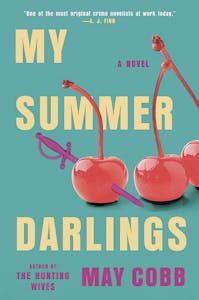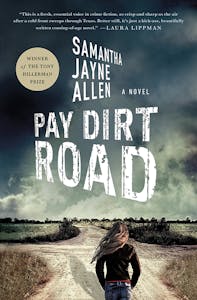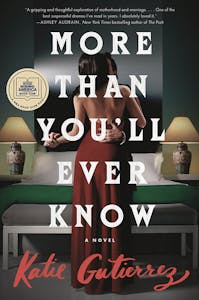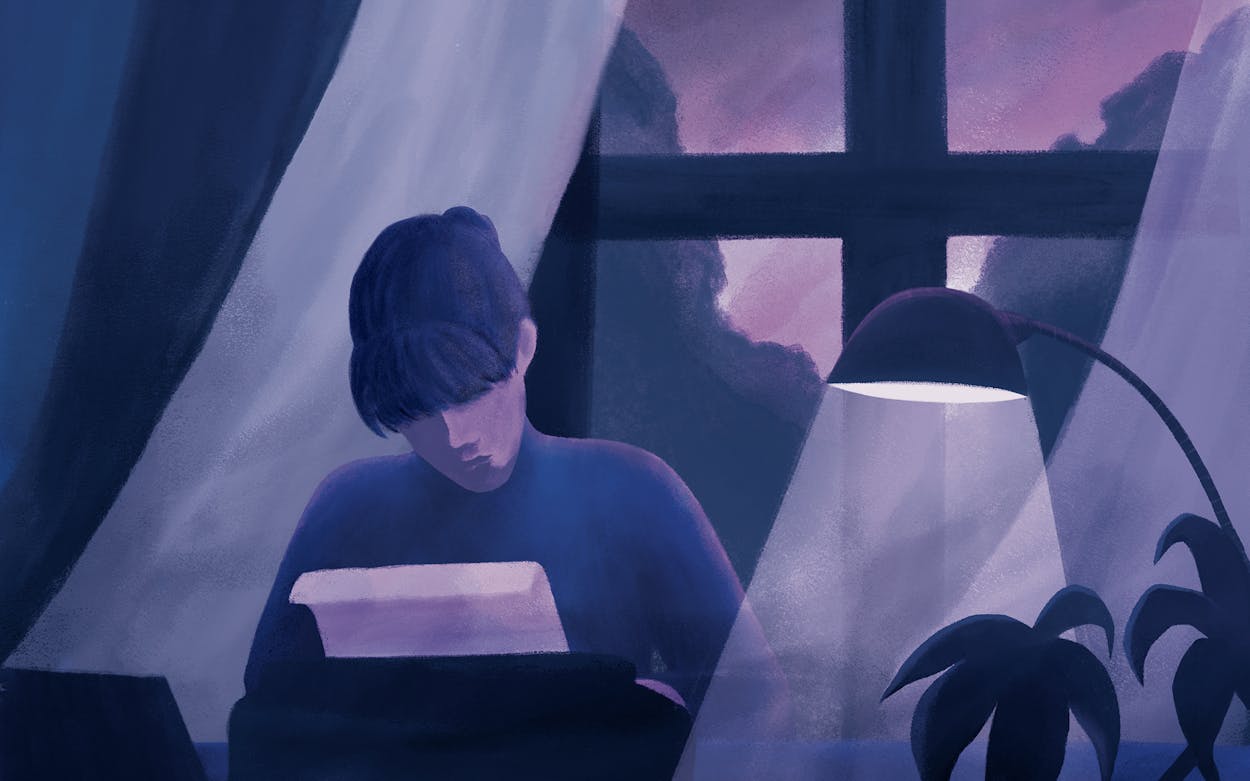Texas women have always written crime fiction, but you’d be forgiven for not knowing many of our names. Female contributors made up an anemic 30 percent of the 2007 anthology Lone Star Sleuths and haven’t fared much better in recent listicles. In one typical example from 2017, Dallas crime author Harry Hunsicker introduced Houston’s Attica Locke, the sole woman on his list of “Top Ten Texas Crime Novels,” by asking us to “imagine Dennis Lehane transforming himself into an African American woman.” It’s a bizarre image that speaks volumes about the strain some people seem to feel envisioning a crime writer from this state who’s not a white man. Despite ferocious talents such as Sandra Brown, Meg Gardiner, Kathleen Kent, and Locke, many readers still regard Texas crime fiction as primarily a genre by and about men, tinged with nostalgia for the tough cowboys and small-town sheriffs of a frontier past characterized by what J. Frank Dobie called “the lack—temporary—of women.”
We’re here now, in force. Ten years ago, Gillian Flynn’s chart-busting Gone Girl ushered in a golden age of female-penned, female-driven psychological suspense. The emergence of women as a dominant force in crime fiction, both as readers and writers, has been one of the biggest publishing stories of the past decade. In the wake of Gone Girl, a cohort of Texas women, including Alexandra Burt, Julia Heaberlin, Natalia Sylvester, and myself, published debuts in which women and girls disappear. Intent on avoiding the copycat label, I refused to let the marketing team put the word “girl” in my book’s title; they came up with Good as Gone, at which point I gave up and told myself that a missing girl lifts all boats.
Missing girls still abound, of course. But the latest crop of the state’s crime novels by and about women shift the emphasis away from cautionary tales and, often, toward frank, unfettered explorations of women’s desires—desires that frequently put them at odds with their communities. Four ambitious books released this year from early-career writers play with reader expectations of the genre by examining the complicated lives of Texas women. (Full disclosure: I am personally acquainted with many of the authors mentioned in this piece and have provided blurbs for Burt, May Cobb, and Samantha Jayne Allen.)

My Summer Darlings (Penguin/Berkley), May Cobb’s follow-up to her acclaimed 2021 thriller The Hunting Wives, solidifies her identity as an East Texas Jackie Collins with better prose and a gift for high-octane twists. Cobb’s books take place in the plush suburbias typical of domestic suspense, a genre in which the trappings of wealth tend to pad out tales of female victimhood. But her stories are winkier, campier, and frankly more fun, wrapping candy-colored social satire around a cri de coeur for a woman’s right to want things that aren’t good for her.
In My Summer Darlings, newly single Jen Hansen moves back home to the East Texas enclave of Cedartown after a messy divorce in Austin. Her married childhood friends, bossy Kittie and cold Cynthia, welcome her enthusiastically, and soon the three are happily engaged in the local pastimes of gossiping, complaining about their teenagers, and easing the slide into middle age with bottle after bottle of sauvignon blanc next to the infinity pool. When mysterious Euro hunk Will Harding moves into the neighborhood, the delicate balance of friendship is upended as all three make plays for him. Will’s hotness melts brains and inhibitions on contact; like the bisexual queen bee Margot Banks in The Hunting Wives, he has infinite curb appeal. (It’s no coincidence that both characters live in gorgeous houses.) Who he is and where he comes from are incidental, as is the pulse-pounding finale; what matters is his trancelike effect on our trio, immediately activating the wants and needs they’ve been numbing for years with alcohol and Pilates. The women cast Will in different fantasy roles—father figure for a teenage son, partner in highbrow pursuits—but the primary draw for them is sex. To get it, they’ll betray friends, husbands, and one another, consequences be damned.
Half the pleasure lies in watching Cobb, an East Texas native who lives in Austin, delay those consequences as long as possible. It’s hard not to cheer for the sheer gutsiness of depicting not one but three middle-aged women who are as horny as their teenage kids. Will never has a chance. Ultimately, the women win because they persist in loving, or at least understanding, one another, right on through two hundred pages of cheerful backstabbing. “She had a reputation for being promiscuous,” Jen says of Brandi, yet another rival for Will’s affections, “but we were all promiscuous, so I never really understood why certain girls got tossed into that category.” This feminist spin on mean-girl antics may feel a bit like having our cake and eating it too. But as one of Cobb’s dirty-minded heroines might say, what the hell else are you supposed to do with cake?

Caroline Frost’s gritty, serious-minded debut, Shadows of Pecan Hollow (William Morrow), may seem to lie at the opposite end of the spectrum from My Summer Darlings, but the through line of female desire links them in interesting ways. At thirteen, runaway foster child Kit Walker is abducted by con artist Manny Romero and groomed to be his partner in a series of robberies across the state. After years on the road together, the abuse turns sexual, leading to a murkily consensual relationship. At nineteen, Kit gets pregnant and leaves Manny before he’s arrested for their holdups, but she never escapes her guilt over both the love and the crimes they shared. Fourteen years later, she’s struggling to raise her teenage daughter in the sleepy East Texas hamlet of Pecan Hollow when Manny, fresh out of prison, comes looking for them.
Unfolding over dual timelines in the seedy-glam seventies and pre-internet nineties, Shadows of Pecan Hollow pours on the nostalgic Texas charm, with mixed results. There are twangy accents and cringeworthy stereotypes, and at one point the book suggests that Austin is located in Austin County. But Frost’s depiction of female desire in a man’s world has undeniable power. A Texas-born therapist currently living in Southern California, Frost first wrote Kit’s story as a screenplay about toxic relationships while struggling with a difficult relationship of her own; that jagged kernel lends a sharpness to the best parts of the book. The seventies scenes track with intimate precision how Manny co-opts and exploits Kit’s nascent desire, “a loosey buzz, like a wind fluttering the down on her skin,” inducting her into brutal realities she’s not ready for. Kit’s lingering horror over her past makes her a loner in the community and distracts her from her daughter’s needs, paving the way for a suspenseful third act that culminates in a bloody finale.
Perhaps to mitigate this harsh ending, Frost has Kit’s previously hostile neighbors come together to help her at the eleventh hour. The implication is that she has only to exorcise her demons to win their love, support, and the inevitable potluck. But small towns have demons of their own, not all of which can be banished with pecan pie.

A more convincing account of a woman’s fraught relationship with a small town comes in Samantha Jayne Allen’s debut mystery Pay Dirt Road (Minotaur Books), winner of the Tony Hillerman Prize for Best First Mystery Set in the Southwest. In Garnett, a fictional rural Central Texas town, violence arises from within the community itself, disproportionately punishing women and girls who don’t fit the confines of respectability. After a stint at an elite college in the Northeast, Annie McIntyre comes back home with a mountain of debt and no clear plan beyond working at a local diner. When a fellow waitress disappears, no one seems to care; Victoria was, after all, “wild.” But Annie knows firsthand how easy it is to fall on the wrong side of that line. To solve the crime, she must reconcile a nostalgic affection for her hometown with the bitter realities of what can happen there to women who, like her, desire too much.
Annie’s beloved grandfather Leroy, an ex-sheriff turned PI who is still drinking hard well into his eighties, embodies the larger-than-life Texas that Annie can’t seem to let go of. Allen’s prose lights up like a neon beer sign when Leroy appears, and it’s only a matter of time before the two team up to solve Victoria’s murder. But Annie, though drawn to Leroy’s colorful stories, doesn’t entirely trust them. “Why in our family was the past so vivid and the present merely a distraction?” she asks. Maybe it’s because Leroy’s tales, despite being “riddled with dead ends and false statements,” are “seamed with veins of gold.” By contrast, the most exciting family legend nowadays involves a hot tub cover that was rumored to have once belonged to George Strait.
Over the course of Annie’s investigation she becomes intimate with a
modern-day Texas in which fracking draws money and bilge water out of the soil, witnesses hide for fear of deportation, and one too many Solo cups at a party can spell a girl’s downfall. The Central Texas setting rings true, not just in its gratifying buffet of kolaches, H-E-B tortillas, and Texas sheet cake, but in the turreted McMansions whose smiling bluebonnet photos hide a host of sins. A pivotal scene takes place in a honky-tonk named, fittingly, Yesterday Once More. Stranded between twin mirages of a romantic Texas past and a bright future elsewhere, Annie finds her home in the blank spaces in between, where women like herself and Victoria can all too easily vanish. Her yearning for the truth pulls together the threads of past and future in a continuous present, “mourning a moment that hasn’t yet passed. A soft-sided sadness I now understand as love.”

But what happens when a woman has two homes, two truths, two loves? Katie Gutierrez’s debut, More Than You’ll Ever Know (William Morrow), the most ambitious of these books, explores what happens when a woman’s desire overflows the boundaries of marriage, family, and even country. In eighties Laredo, Lore Rivera seemingly has it all: married to her high school sweetheart, Fabian Rivera, and a mother of twin boys, she is also an international banker whose job requires frequent travel to Mexico City. There, Lore falls in love with Andres Russo, marries him, and leads a cross-border double life that culminates in a lurid murder.
Thirty years later, it’s the bigamy, not the murder, that attracts Cassie Bowman, an Austin-based reporter looking for a true-crime narrative to base a book on. Engaged to a perfectly nice guy she can’t quite seem to marry, Cassie is fascinated by Lore’s unstoppable hunger and absence of regret. As Cassie unearths new details of the old crime, she begins to solve the mystery of her own past, and after a few twists and turns, the two dovetail in a satisfying conclusion.
In some ways, Lore feels the truest to Texas of any of the characters in these novels. Her two lives tease out the element of performance inherent in all identity—mother, daughter, wife, immigrant, Texan—even as the book’s juxtaposition of historical mystery and modern-day true crime suggests that crime fiction itself may benefit from hybridity. As Lore points out, crime becomes “true crime” only when it’s turned into a story, and the meaning of any story depends on who has the power to tell it. Gutierrez, a Laredo native who lives in San Antonio, clearly does; with lush prose and tense mystery beats, More Than You’ll Ever Know may be one of the year’s most satisfying reads.
It’s the clearest indication that the Texas crime fiction genre is broader and deeper than ever. Goodbye, gone girls. Hello, Texas women.
Austin novelist and critic Amy Gentry is the author of Good As Gone, Last Woman Standing, and Bad Habits.
This article originally appeared in the August 2022 issue of Texas Monthly with the headline “Women Crime Fiction Writers Have Finally Escaped the Shadow of Gone Girl.” Subscribe today.







